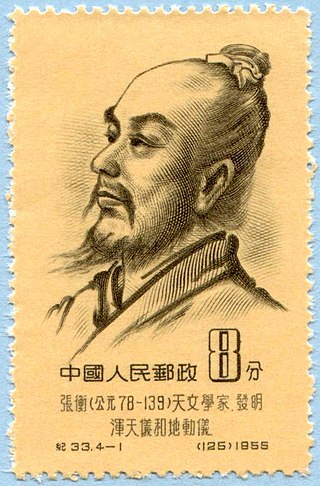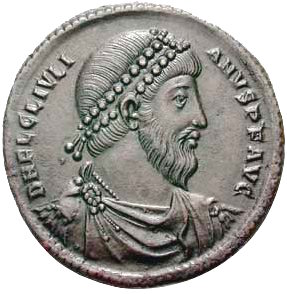
AD 14 (XIV) was a common year starting on Monday of the Julian calendar. At the time, it was known as the Year of the Consulship of Pompeius and Appuleius. The denomination AD 14 for this year has been used since the early medieval period, when the Anno Domini calendar era became the prevalent method in Europe for naming years.

The 120s was a decade that ran from January 1, AD 120, to December 31, AD 129.

Year 125 (CXXV) was a common year starting on Sunday of the Julian calendar. At the time, it was known as the Year of the Consulship of Paullinus and Titius. The denomination 125 for this year has been used since the early medieval period, when the Anno Domini calendar era became the prevalent method in Europe for naming years.
AD 88 (LXXXVIII) was a leap year starting on Tuesday of the Julian calendar. At the time, it was known as the Year of the Consulship of Augustus and Rufus. The denomination AD 88 for this year has been used since the early medieval period, when the Anno Domini calendar era became the prevalent method in Europe for naming years.
AD 97 (XCVII) was a common year starting on Sunday of the Julian calendar. At the time, it was known as the Year of the Consulship of Augustus and Rufus. The denomination AD 97 for this year has been used since the early medieval period, when the Anno Domini calendar era became the prevalent method in Europe for naming years.
The 140s decade ran from January 1, 140, to December 31, 149.
The 150s decade ran from January 1, 150, to December 31, 159.
103 (CIII) was a common year starting on Sunday of the Julian calendar. At the time, it was known as the Year of the Consulship of Traianus and Maximus. The denomination 103 for this year has been used since the early medieval period, when the Anno Domini calendar era became the prevalent method in Europe for naming years.
Year 121 (CXXI) was a common year starting on Tuesday of the Julian calendar. At the time, it was known as the Year of the Consulship of Verus and Augur. The denomination 121 for this year has been used since the early medieval period, when the Anno Domini calendar era became the prevalent method in Europe for naming years.
Year 146 (CXLVI) was a common year starting on Friday of the Julian calendar. At the time, it was known as the Year of the Consulship of Clarus and Severus. The denomination 146 for this year has been used since the early medieval period, when the Anno Domini calendar era became the prevalent method in Europe for naming years.
Year 156 (CLVI) was a leap year starting on Wednesday of the Julian calendar. At the time, it was known as the Year of the Consulship of Silvanus and Augurinus. The denomination 156 for this year has been used since the early medieval period, when the Anno Domini calendar era became the prevalent method in Europe for naming years.
Year 105 BC was a year of the pre-Julian Roman calendar. At the time it was known as the Year of the Consulship of Rufus and Maximus and the Sixth Year of Yuanfeng. The denomination 105 BC for this year has been used since the early medieval period, when the Anno Domini calendar era became the prevalent method in Europe for naming years.
Year 172 (CLXXII) was a leap year starting on Tuesday of the Julian calendar. At the time, it was known as the Year of the Consulship of Scipio and Maximus. The denomination 172 for this year has been used since the early medieval period, when the Anno Domini calendar era became the prevalent method in Europe for naming years.

Year 361 (CCCLXI) was a common year starting on Monday of the Julian calendar. At the time, it was known as the Year of the Consulship of Taurus and Florentius. The denomination 361 for this year has been used since the early medieval period, when the Anno Domini calendar era became the prevalent method in Europe for naming years.
Year 318 (CCCXVIII) was a common year starting on Wednesday of the Julian calendar. At the time, it was known as the Year of the Consulship of Licinianus and Crispus. The denomination 318 for this year has been used since the early medieval period, when the Anno Domini calendar era became the prevalent method in Europe for naming years.
Year 88 BC was a year of the pre-Julian Roman calendar. At the time it was known as the Year of the Consulship of Sulla and Rufus and the First Year of Houyuan. The denomination 88 BC for this year has been used since the early medieval period, when the Anno Domini calendar era became the prevalent method in Europe for naming years.
Year 128 BC was a year of the pre-Julian Roman calendar. At the time it was known as the Year of the Consulship of Octavius and Rufus and the First Year of Yuanshuo. The denomination 128 BC for this year has been used since the early medieval period when the Anno Domini calendar era became the prevalent method in Europe for naming years.

Year 200 BC was a year of the pre-Julian Roman calendar. At the time it was known as the Year of the Consulship of Maximus and Cotta. The denomination 200 BC for this year has been used since the early medieval period, when the Anno Domini calendar era became the prevalent method in Europe for naming years.
Year 210 BC was a year of the pre-Julian Roman calendar. At the time it was known as the Year of the Consulship of Marcellus and Laevinus. The denomination 210 BC for this year has been used since the early medieval period, when the Anno Domini calendar era became the prevalent method in Europe for naming years.
Year 121 BC was a year of the pre-Julian Roman calendar. At the time it was known as the Year of the Consulship of Opimius and Allobrogicus and the Second Year of Yuanshou. The denomination 121 BC for this year has been used since the early medieval period, when the Anno Domini calendar era became the prevalent method in Europe for naming years.




